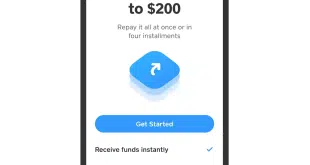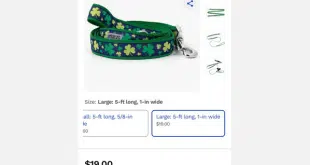MasterCard Worldwide announced on Thursday the start of a contactless-payment pilot in Dallas using mobile phones enabled by near-field communication (NFC) technology. The pilot, which is expected to involve about 500 subscribers of 7-Eleven Inc.'s Speak Out Wireless service, is the second real-world test of NFC payment in the U.S. and the first to rely on so-called over-the-air personalization (OTA), which allows phone users to download card-account data, payment applications, and other information to their phones over the carrier network. Expected to last six months, the pilot will allow users to pay for goods at 150 Dallas-area 7-Eleven outlets, as well as any other stores that accept PayPass. Later on, it will feature so-called smart posters that will let users download Internet links to access information and digital content as well as rewards for usage delivered via NFC or over the air, says MasterCard, which apparently has its eye on further pilots starting over the next several months. “This is the first implementation,” says Oliver Steeley, vice president of mobile and wireless at MasterCard's Centre of Excellence in London. “Watch this space.” Recruitment for the pilot began Thursday morning with text messages to some 12,000 of Speak Out Wireless's 15,000 Dallas-area subscribers. Speak Out is a brand name 7-Eleven has given to the wireless service it resells in the U.S. as a mobile virtual network operator for Cingular Wireless and Sprint. The messages offer a free Nokia 3220 cell phone and a $20 initial credit to a prepaid account held by People's Bank of Paris, Texas, and administered by prepaid processor Bluko Information Group Inc., Las Vegas, Nev., whose eFinity consumer brand is being used on the accounts. Steeley says the pilot is limited to 500 users because expanding it further would not produce a “step change” in what the card company could learn. It also limits the company's costs for handsets and $20 credits, he points out. The Nokia model is the same one used in a similar NFC pilot in Atlanta backed by Visa USA and involving JPMorgan Chase & Co. credit card accounts and Cingular. For that nine-month pilot, which ended this summer, phones were manually programmed for NFC payment rather than enabled via OTA personalization. MasterCard hopes its Dallas pilot will test the possibilities for OTA, as it sees pre-equipping handsets as unsuitable for eventual rollouts. “In Atlanta, they will have learned less because there was no OTA,” Steeley says of the Atlanta pilot backers. Consumers who sign up for the pilot receive a one-time password and indicate an account they want to use for funding. When they receive their phones, they will get a text message prompting them to enter the password, which will trigger a download of the PayPass application to a chip in the phone's back plate that meets bank smart card security requirements, according to Steeley. Since the phones will feature only the prepaid account, they will not have wallet software similar to that used in Atlanta, he says. Once they've completed the download, users can start using their phones for NFC payment. MasterCard is relying on an OTA platform developed by Munich-based smart card maker Giesecke Devrient, which the card company introduced this spring (Digital Transactions News, April 6). This platform also allows users to download PayPass capability to their phones by using their banks' online programs, though for the Dallas pilot the downloads will be managed from the handsets. The G&D platform, Steeley says, is ready for commercial rollouts, with lack of NFC-enabled handsets the only limiting factor. In Dallas, the card company is hoping to gauge consumer reaction to the steps needed to perform OTA. “We're asking consumers to use their mobile phones to access data services, carry out downloads, and type in a one-time code,” Steeley says. “Let's see if they're ready to do that.” Some subscribers, he says, will be coping with text messages and data downloads for the first time. Others, he says, may simply use their phones for voice calls and neglect the payment function. The current pilot is the second one MasterCard has backed in Dallas for mobile payments. It ran a pilot in 2003 in the city that used Nokia phones and contactless technology but not NFC. With NFC, chips in mobile phones can link automatically with point-of-sale transceivers, posters, or other media also equipped with NFC chips and perform two-way communication. The technology works only at extremely close range, typically around 4 centimeters.
Check Also
MTech Mobility’s New Touchtab and other Digital Transactions News briefs from 3/13/25
MTech Mobility introduced Touchtab, a mobile point-of-sale platform aimed at restaurants and promising faster processing of …



